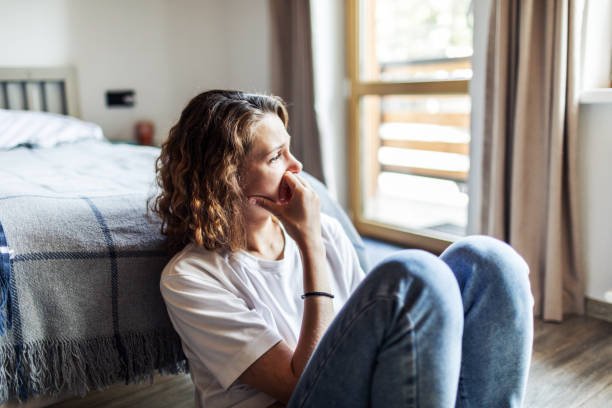Let’s talk about sleep. Not the sheep-counting, lullaby sort, but the real, sometimes-messy, often-underrated sleep that all teenagers desperately need (though they might deny it, with a straight face, at 2 am on TikTok). I read somewhere—just now? Maybe last night—that sleep is the behind-the-scenes producer in the wild movie of adolescence: unglamorous but absolutely running the show. For teens wrestling with mental health curveballs or recovering from substance issues, sleep isn’t just a luxury. It’s the scaffolding that holds the whole show together. Want to know how? Let’s riff.
Read more about how teens can build better sleep habits and why it matters for their mental and physical recovery.
How Teen Sleep Became a Secret Superpower (Or Not)
Truth be told, teens have science working against them. Their clocks are set to “night owl,” but life—school bells, bus schedules, alarms blaring at dawn—demands they turn in early. The result? Sleep deprivation, mood swings, and a kind of groggy superhero vibe with none of the powers. Just this morning, scrolling the news, I saw another headline blaming everything from GPA drops to sudden surges in snarkiness on sleep loss in high schoolers. Honestly, I believe it.
Here’s the kicker: throw addiction recovery into that pile of chaos, and sleep goes from nice-to-have to can’t-live-without. Picture this: a teen finally breaks away from substances, but their brain, suddenly lacking those chemical shortcuts, decides to wage war on restful nights. Insomnia, restlessness, night after night of staring at textured ceilings. Bad sleep doesn’t just make it tough to resist cravings—it can feel impossible to hang onto hope, momentum, or, some days, even basic patience.
Brain Chemistry: Not Just for Science Nerds Anymore
Let’s detour into Brain Chemistry 101. When kids skip sleep, the mood police are off-duty. Those all-star neurotransmitters—serotonin, dopamine, whatever else is bubbling up—start slacking. Suddenly, a tiny disappointment turns into a meltdown. For teens with a history of using, these emotional dips can practically roll out a welcome mat for old habits.
And don’t get me started on the prefrontal cortex. This brain region (think of it as your personal Jiminy Cricket mixed with a risk-assessment consultant) checks out early when you’re tired. That means impulse-control drops, dumb decisions increase, and suddenly the “just this once” temptation stands tall. I am not making this up: it’s science, but also, it just makes sense if you have ever tried reasoning with a grumpy, overtired teenager.
Withdrawal? It’s a funhouse mirror for sleep. Drugs, booze, energy drinks—anything kids use to cope—can scramble sleep cycles for weeks or months. Fragmented sleep, weird dreams, a restless, jittery feeling at four in the morning; these aren’t just quirks. They’re real, tangible roadblocks on the way out of addiction.
How Do We Help Teens Take Back the Night?
Let’s be honest, consistency is not most teenagers’ strong suit. But regular bedtimes and wake-up calls? They do wonders for resetting the brain’s internal clock. I know, that sounds suspiciously like advice from every sleep study ever, but it actually works (sometimes). If a parent can get a teen to skip screens before bed—no blue-lit rabbit holes, no endless scrolling—they’ve basically unlocked a level-up for sleep quality.
Small routines help too: maybe it’s reading, listening to that oddly soothing playlist, or just lying there, breathing, letting the day unravel. When adults (yes, including teachers—my high school advisor actually asked about my sleep once and, wow, it stuck) chat openly about sleep, cravings, or stress, it shifts rest from a shameful secret to a shared project.
Programs that make sleep a legit part of addiction recovery aren’t just being trendy. They’re smart. Better sleep, better odds at beating cravings, less chance of bouncing back to old habits. Think of it as patching a leaky boat before crossing the river: less water, more success.
Not to mention, teens recovering from addiction can find vital support through outpatient addiction help, which often includes sleep management strategies to strengthen their recovery journey.
Zooming Out: Why Sleep Is the Unsung Hero of Recovery
Researchers—yes, actual grownups with degrees and everything—keep finding new links between sleep and every part of teen life: how they cope with pressure, how they shrug off drama, even how likely they are to cave to temptation. Want resilient teens? Fill the sleep bucket first.
For those navigating the unique challenges of recovery, options for personalized addiction care provide extra support to tailor treatment—including fixing sleep—around each teen’s needs.
And on the macro scale? Schools tweaking start times, adding sleep-friendly lessons, or offering counselors who actually care about how kids are sleeping—not just their grades—are making a dent. Parents who see “sleep troubles” as more than classic teenage laziness? They’re not just being compassionate; they’re setting up a win for recovery.
Look, I remember my own high school failure to sleep—late video games, late-night stress, grades ping-ponging everywhere. When I (belatedly) got it together—screens off, usual time to bed—suddenly senior year felt manageable, like I’d finally found the cheat code.
Future Perfect (Or, Let’s Get Real)
Recovery isn’t a story with a neat act one, two, and three. Sometimes it’s a muddle of plotlines, unexpected setbacks, and, if you’re lucky, a few “aha!” moments. Sleep? It’s the agent fixing the script behind the scenes. The real magic is how enough sleep steadies moods, un-jumbles focus, calms wild impulses, and makes that “just say no” moment a little less dramatic, a little more possible.
So, here’s my humble, occasionally sleep-deprived advice: let’s stop treating sleep like a supporting character. In the messy, heroic movie of teenage recovery and mental health, sleep is the star you didn’t know you needed—until now.

